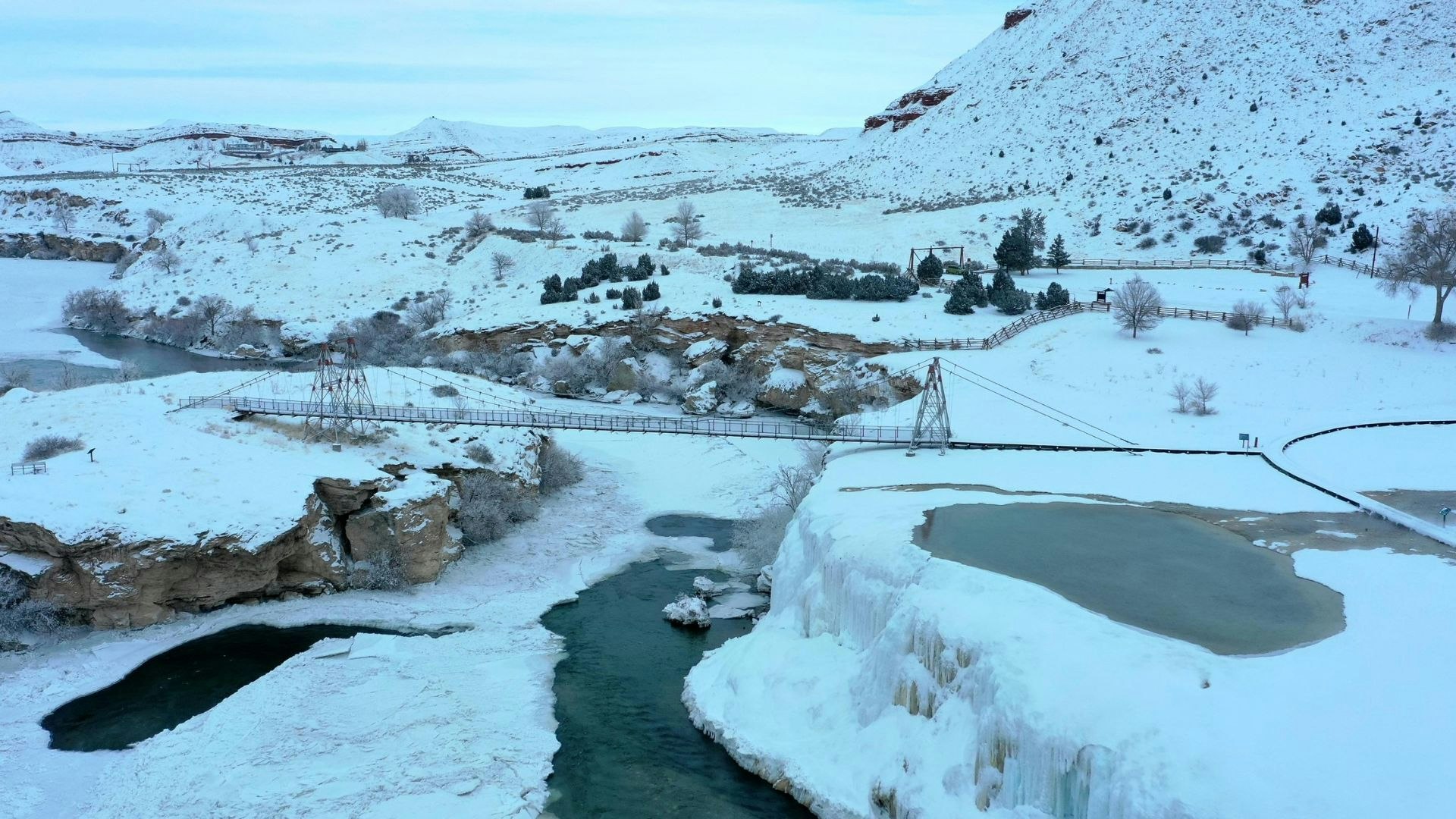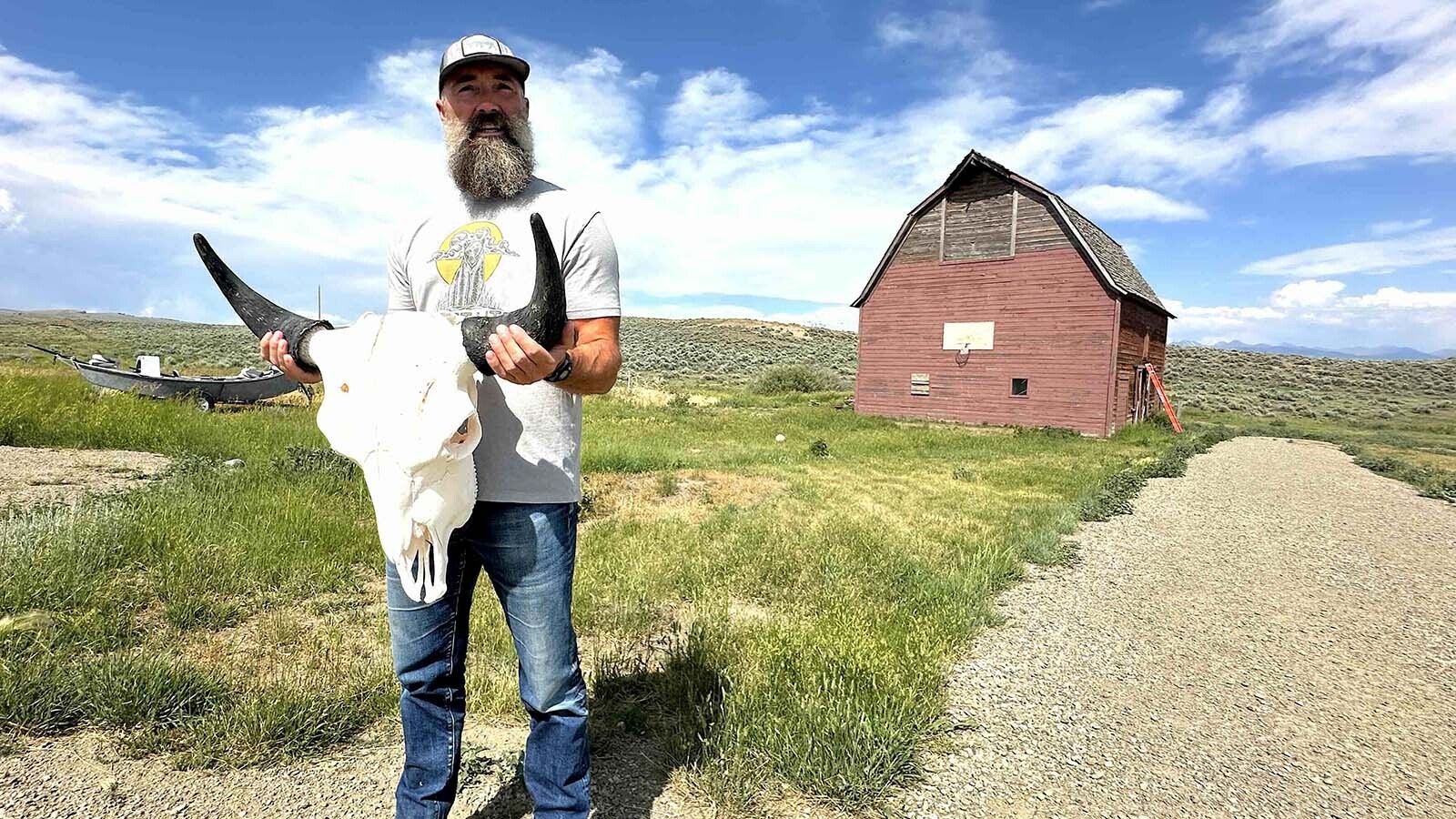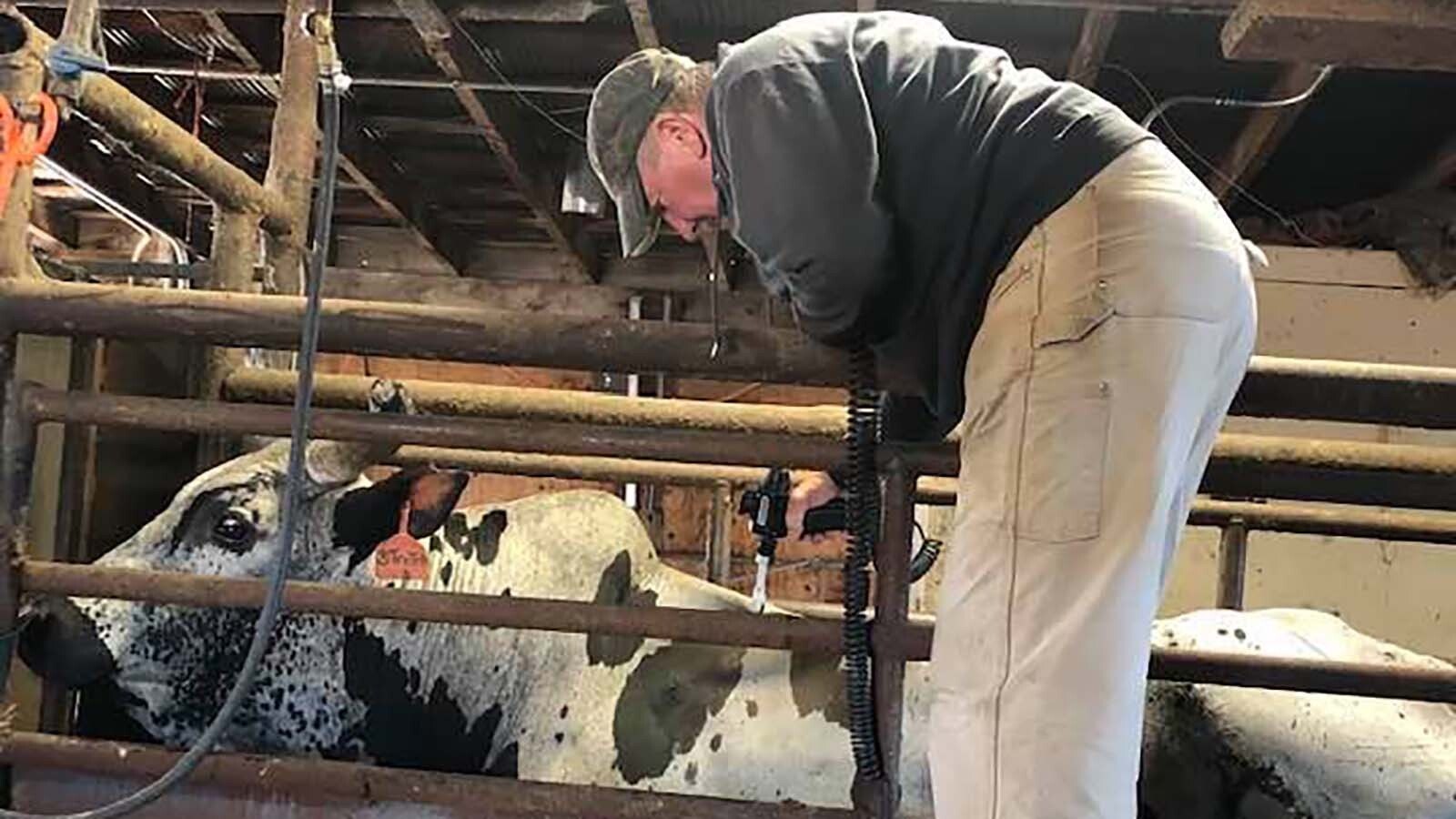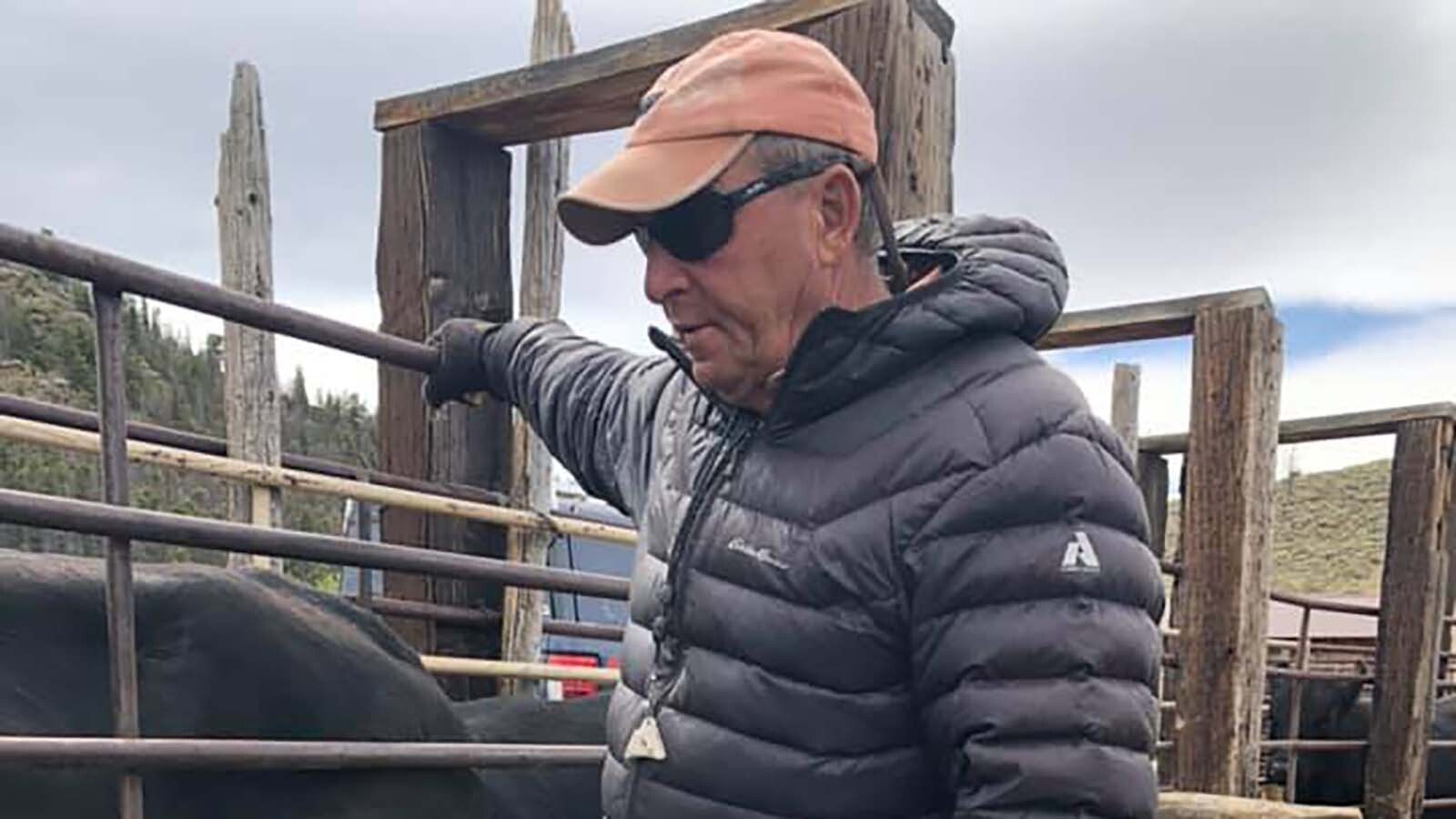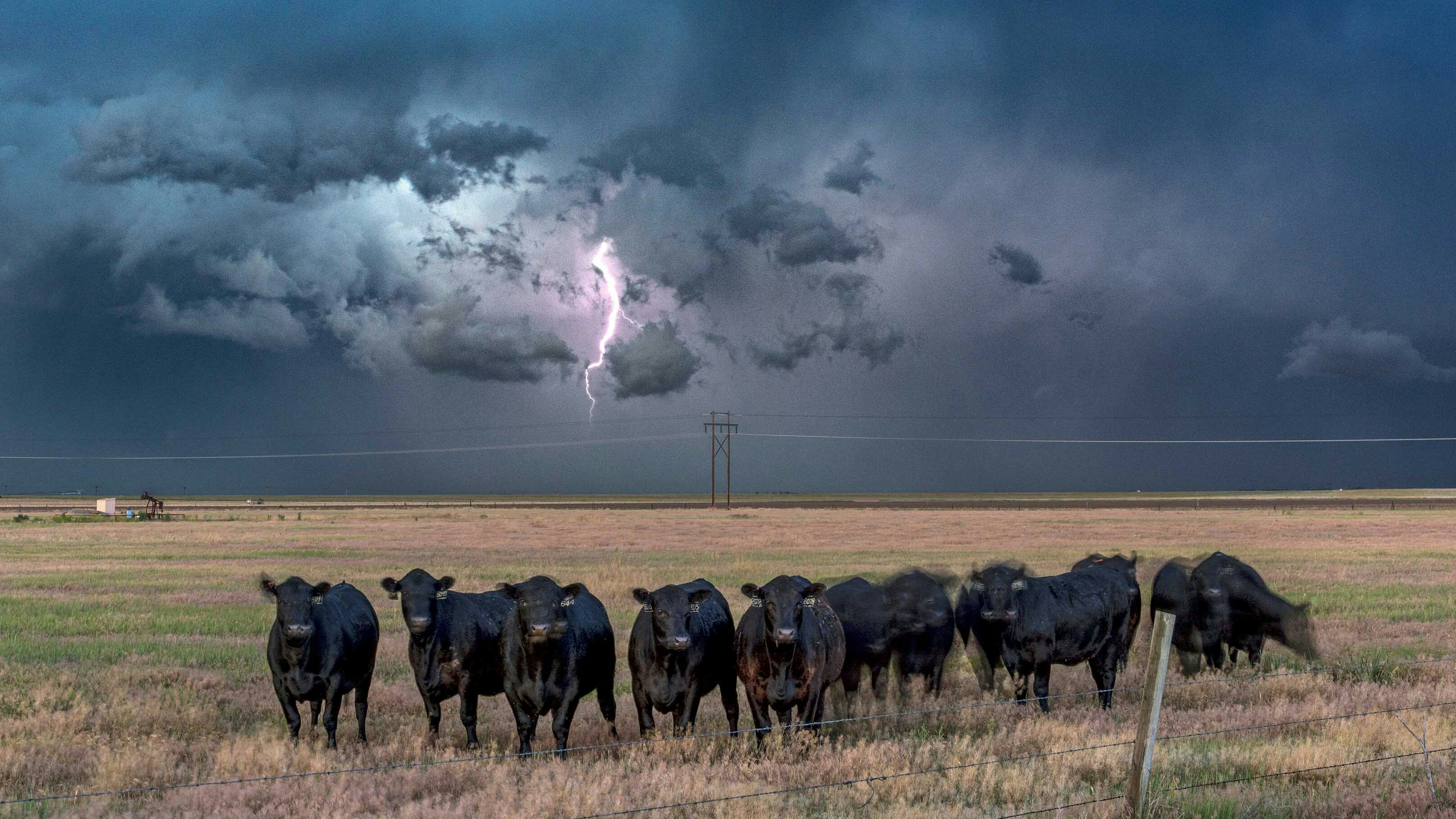Rising water and gathering ice on the Big Horn River near Thermopolis has caused some alarm for community leaders, who mobilized to avoid property damage and danger to residents.
A video by Thermopolis police chief Pat Cornwell on what locals call “the swinging bridge” depicts the dangerous ice and water on Thursday. The next day, the river had completely frozen over.
Cornwell said that since he and his family moved to Thermopolis in 2003, the river has only frozen over like this twice.
“Dec. 21, 2014, it did the same thing,” he said. “But it took out the boat dock and twisted it up into nothing.”
Hot Springs Emergency Management Coordinator Bill Gordon said the jam in 2014 was caused by large ice chunks traveling quickly down the river with a powerful current driving them.
“It just twisted and mangled that boat launch,” he said.

Prepared for ‘Angry’ River
This year, when the forecast for last week’s freezing temperatures began to take shape, Gordon gathered community leaders to plan for the worst.
“I knew from my records that when the forecast extreme temperatures were supposed to hit, that (it was going to be) colder this year than it was in 2014,” he said. “So that’s what sort of raised our alarms, and we said, ‘We want to get in front of this, in case the river really decides to get angry and start doing weird things.’”
So representatives from the Wyoming Department of Transportation, Hot Springs County Road and Bridge, the county’s Public Works Department, the Thermopolis mayor and police chief, a county commissioner and the public health response coordinator all gathered to make plans to keep residents safe should the river back up because of rising ice and water.
“If we have two nights in a row of 30 below zero, and there’s water coming out of the river into the streets, it’s going to be freezing on its way up the street,” said Gordon.
Frozen Over
Gordon said that the frozen river poses no immediate danger to residents.
“From probably 200 yards down river, or north of the Swinging Bridge, all the way back through the town of Thermopolis to basically the other end of town is all just solid ice,” he said. “It’s jammed in there, but it’s not causing any problems.”
And Gordon said that if all went well, once the damaging cold snap was over a channel should slowly open in the ice and water will begin to flow again.
“Then the level of the river will begin to drop a little bit and everything will clear out slowly and harmlessly,” he said.
But that doesn’t mean that the town is out of the woods just yet.
Still Potential For Flooding
Gordon pointed out that Worland, downstream of Thermopolis, has experienced damaging flooding in the past after the frozen river started to thaw.
“They had problems not so much from the freeze itself, but from the breakup after the freeze, when you had the really enormous chunks of frozen ice as it’s breaking up,” Gordon said. “And then if they happen to all jam up and dam up, they really back up some water.”
But because of its proximity to Boysen Reservoir, which feeds the Big Horn River, Thermopolis doesn’t usually have the ice problems that communities downriver experience.
“The water is coming from a level down below the surface of the lake, so it’s a couple degrees above freezing and starts down the river through the (Wind River) canyon where the flow is really fairly turbulent, so the ice just doesn’t really have much of a chance to form into problem size,” said Gordon.
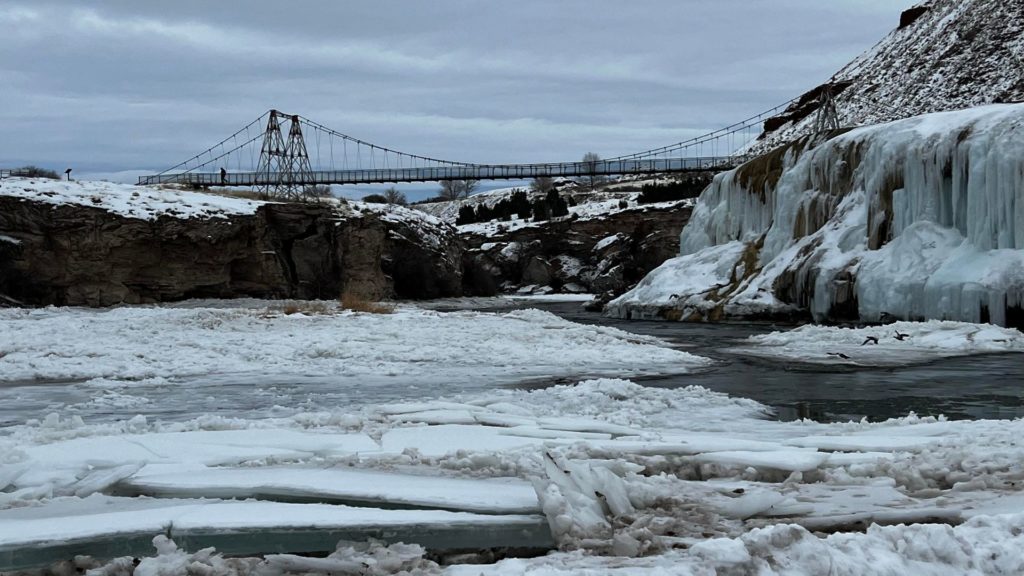
Downriver On Lookout
However, after the river flows beyond Thermopolis and heads toward Worland, the water begins to get cooler and calmer along long wide stretches.
“Then the ice begins to form and it heads on down and becomes a problem for Washakie County,” said Gordon.
That’s why when temperatures are extremely cold, he said the freezing temperatures are more powerful than the turbulence in the river, and ice starts to form.
That’s when the town of Thermopolis starts to see big flows of slush and surface ice, like what has happened this year.
“And then it gets into the state park, and it tries to go through those narrows under the Swinging Bridge and around that bend, and it just slows down enough that just just before that first night of being so cold, it stopped, and it started to freeze right there,” said Gordon.
‘Sometimes It Wreaks Havoc’
Gordon, who says that the Big Horn River and the Boysen Dam are his favorite topics of conversation, is fascinated by the different “personalities” the water shows each time it jams up.
“Sometimes it’s harmless and sometimes it just wreaks havoc, and you just don’t know until it occurs,” he said.
Gordon expressed his hope that this unusual freeze will pass without any damage to property or people.
“I don’t anticipate problems, but we’re going to continue to just keep watching it, just in case it decides to do something weird,” he said.

